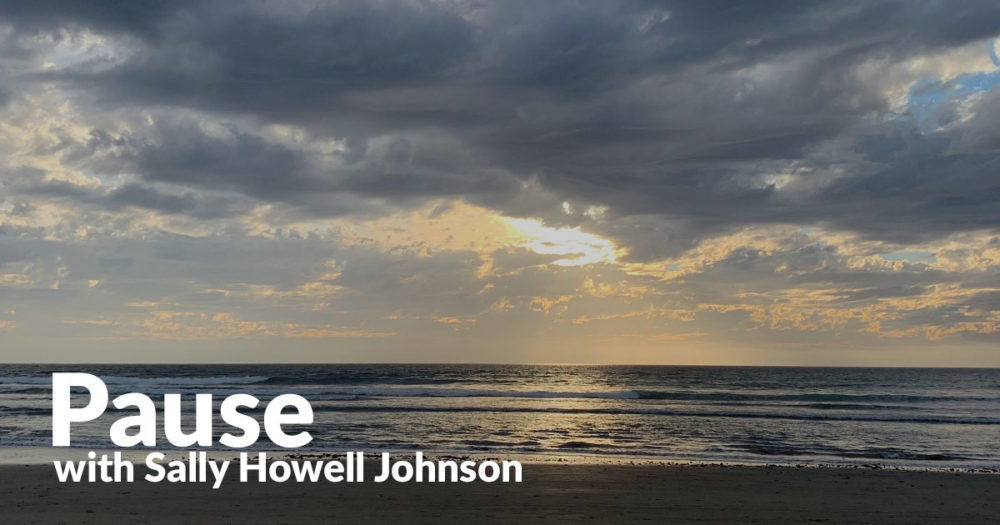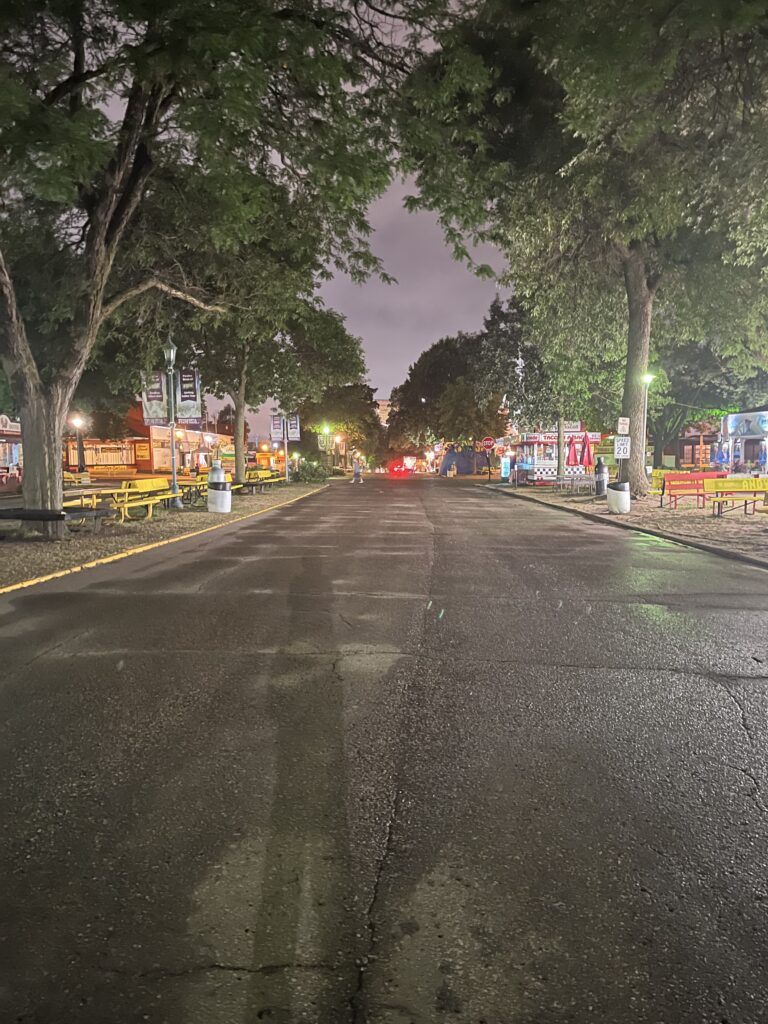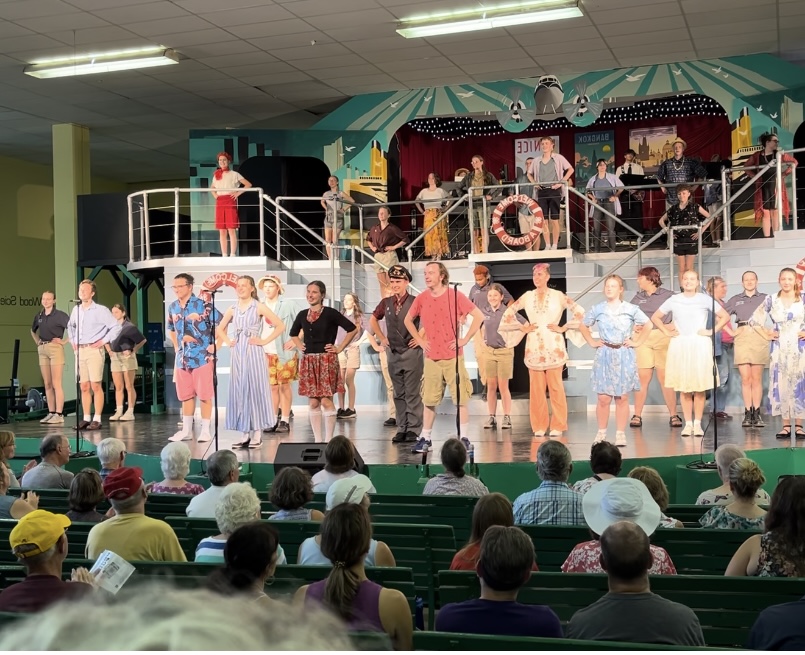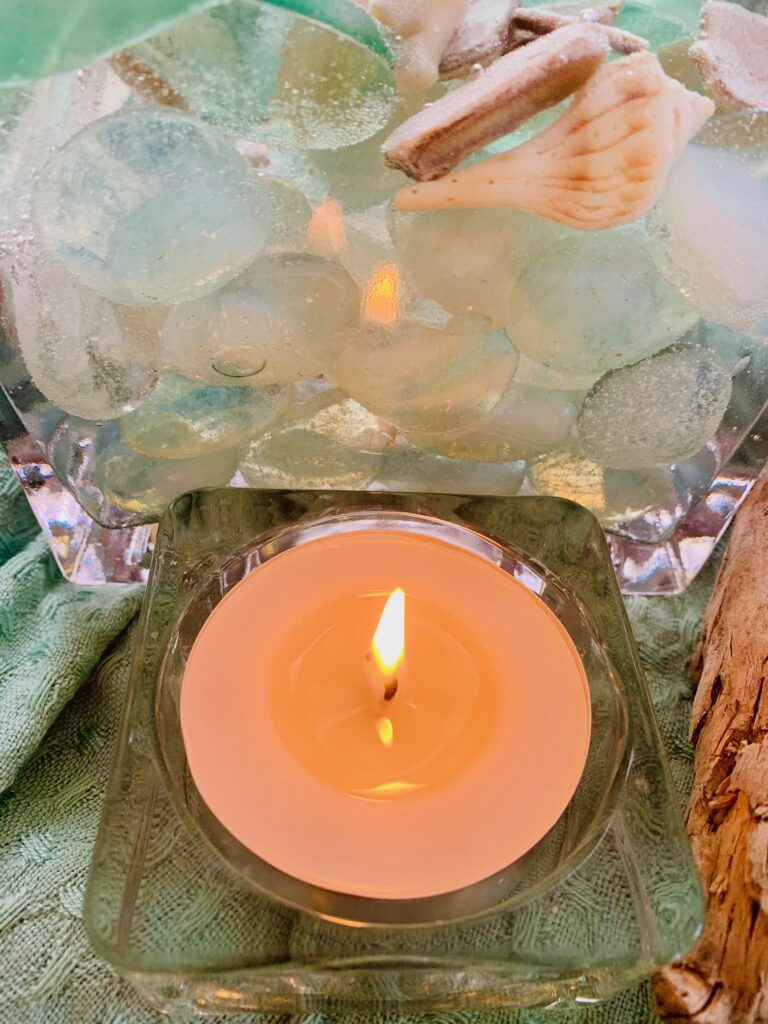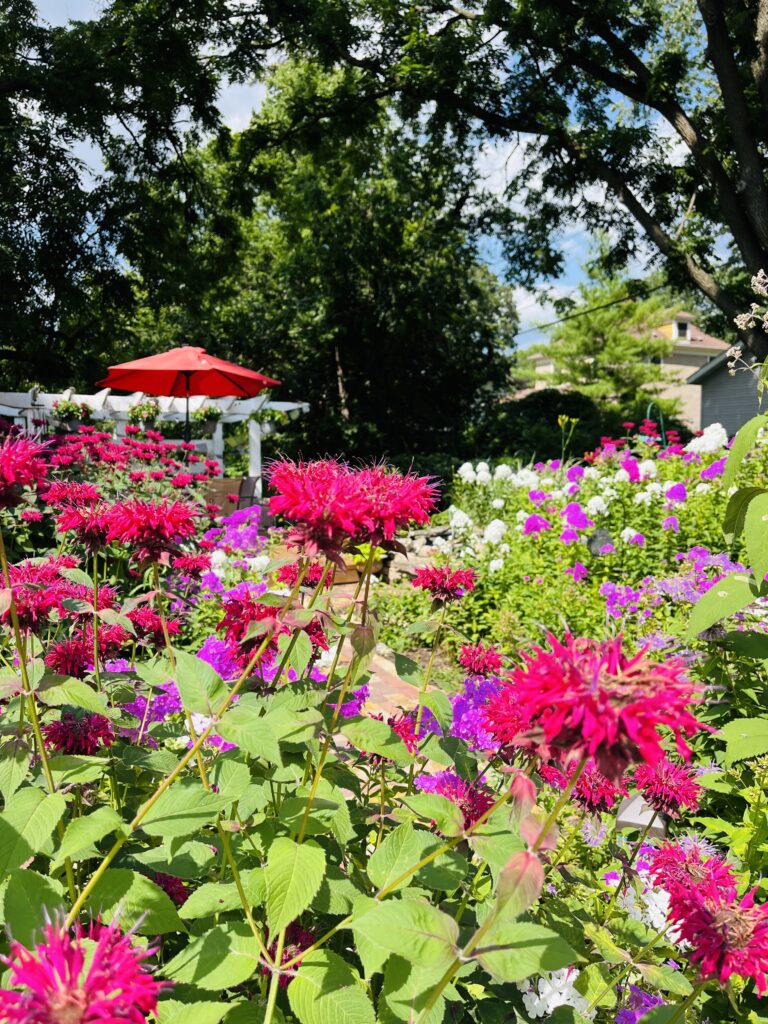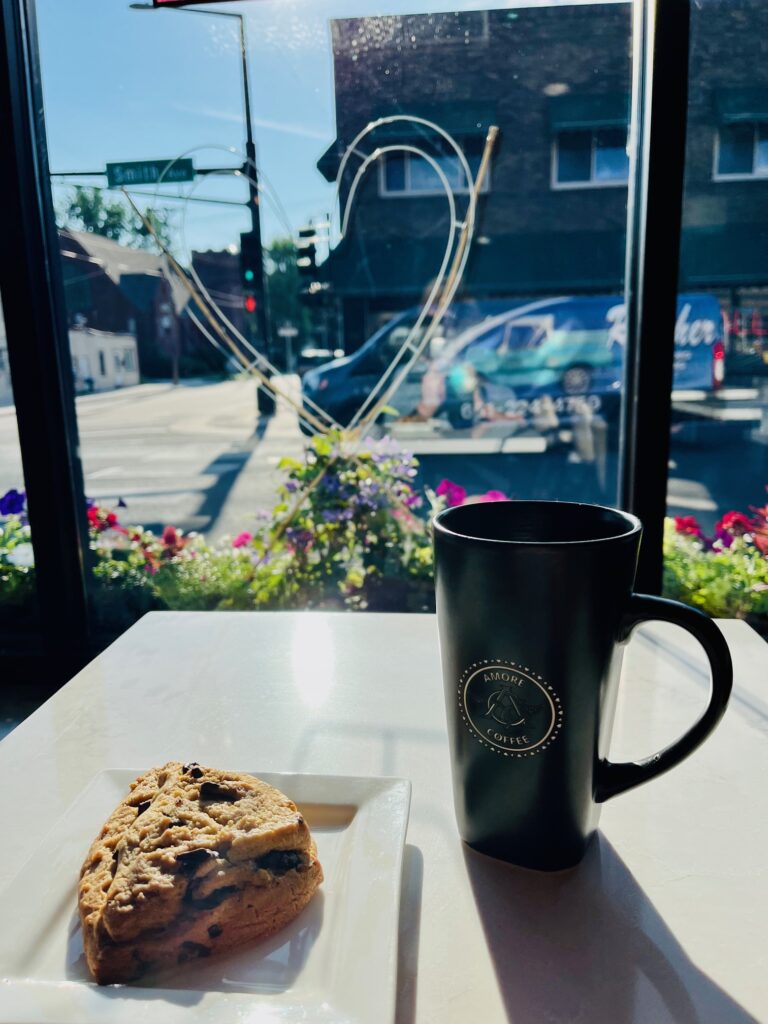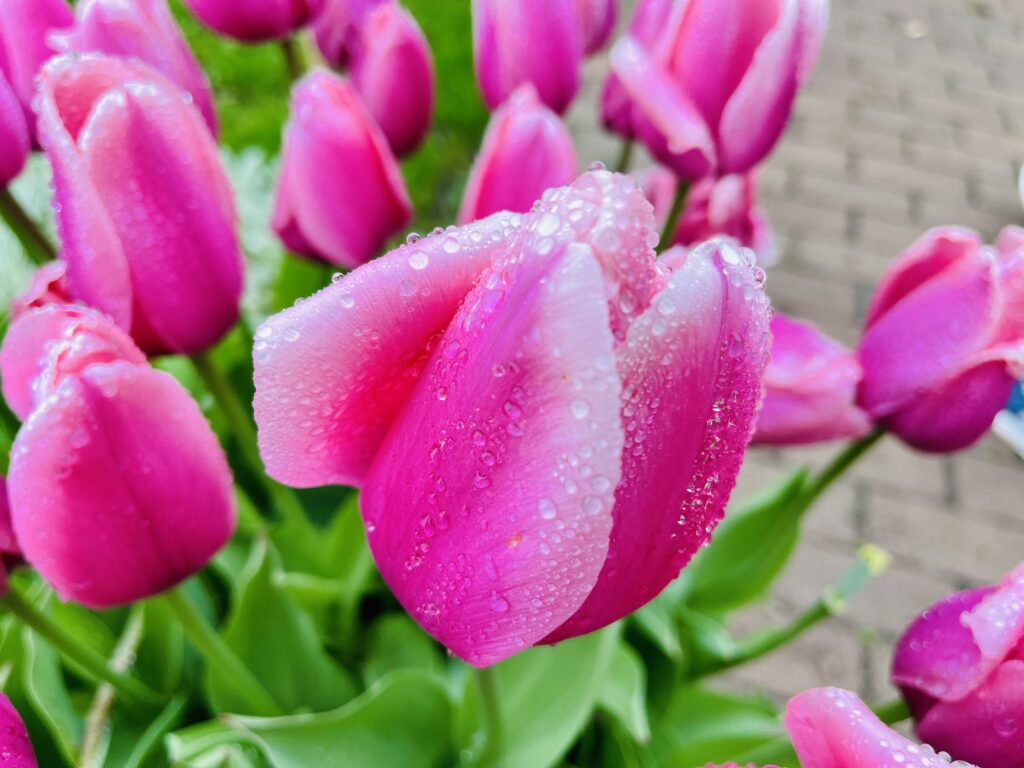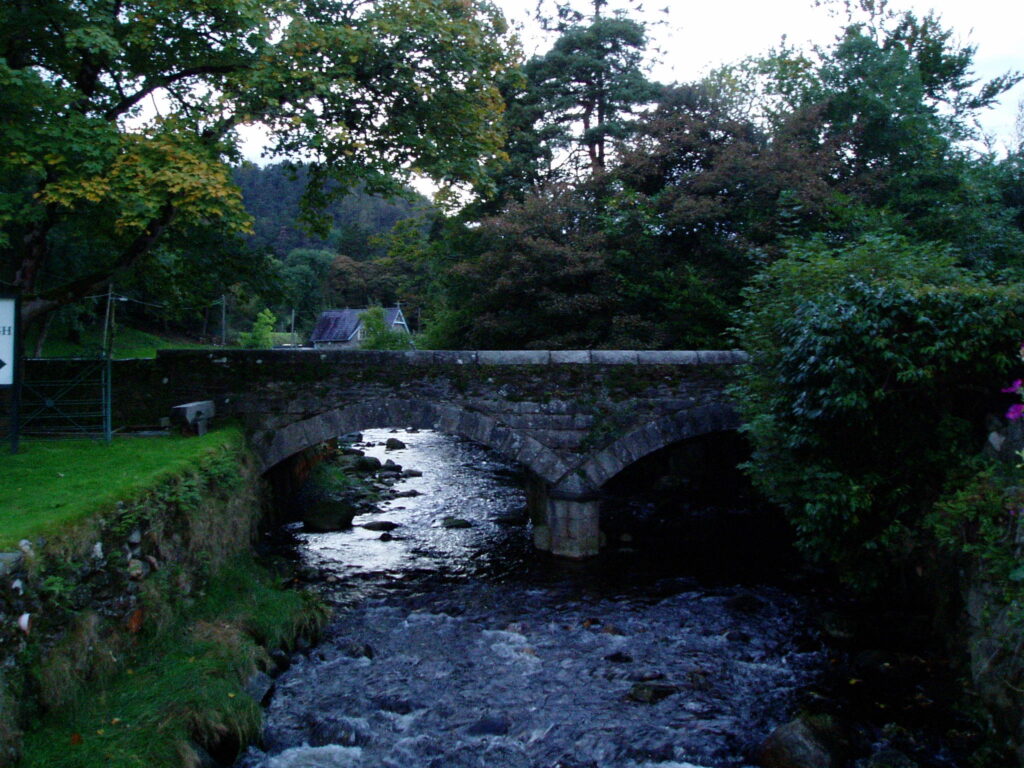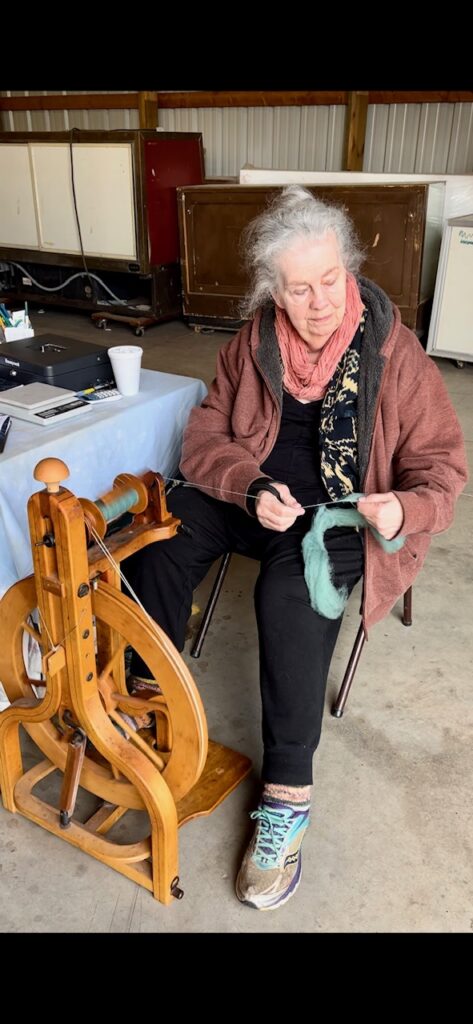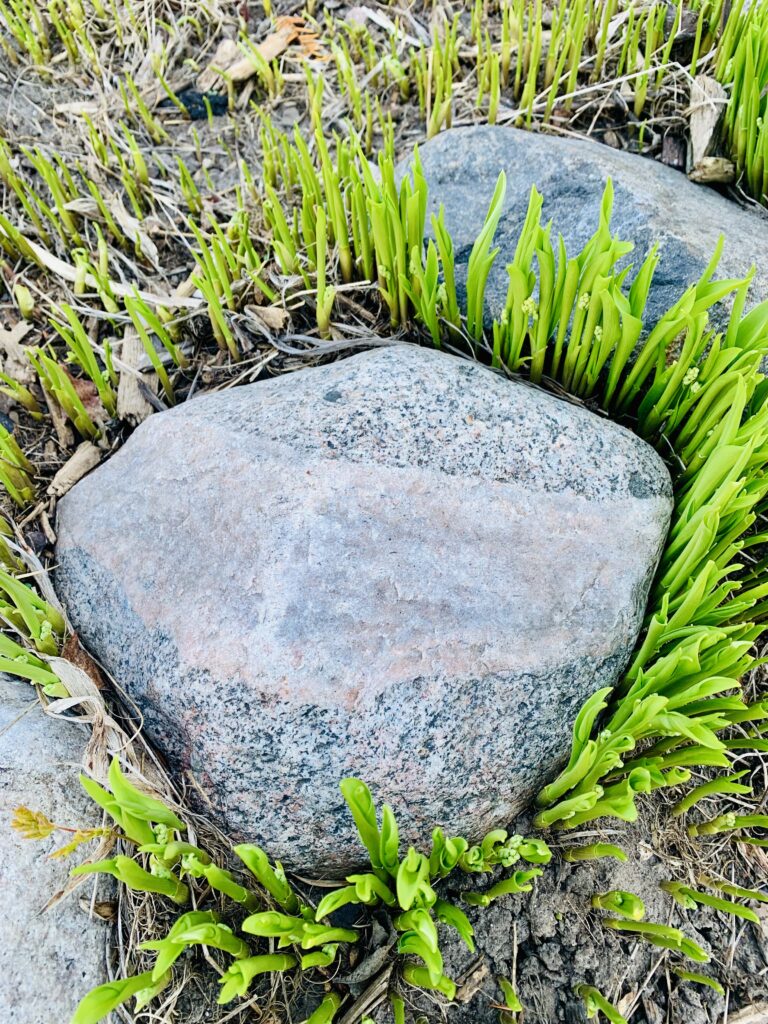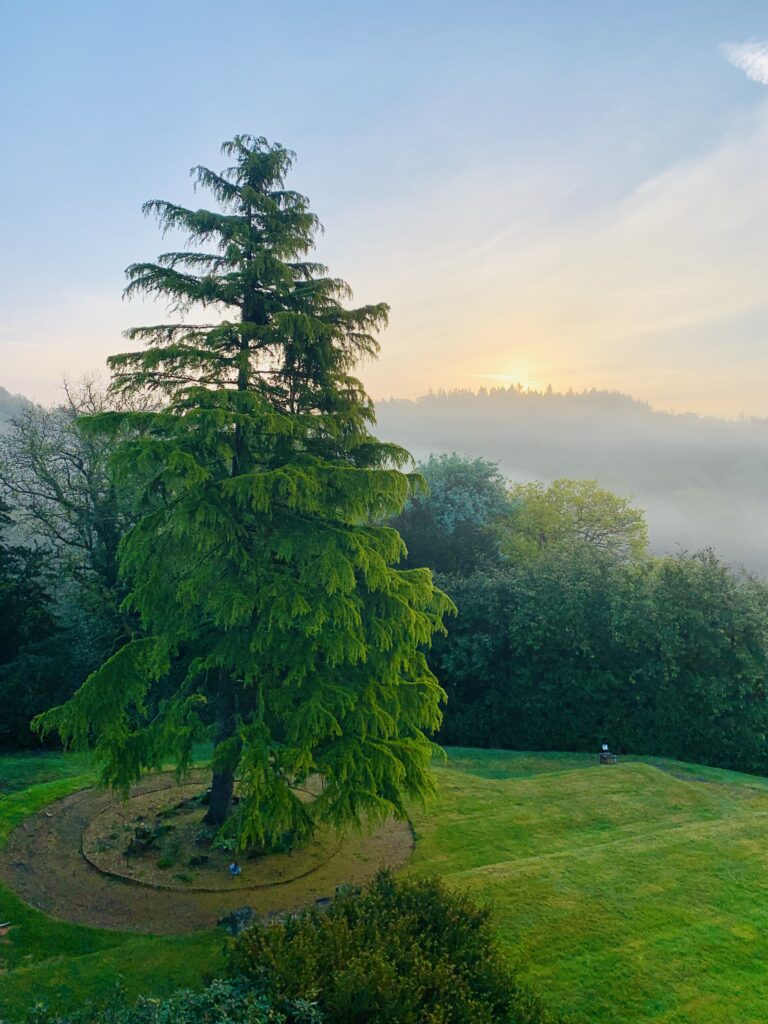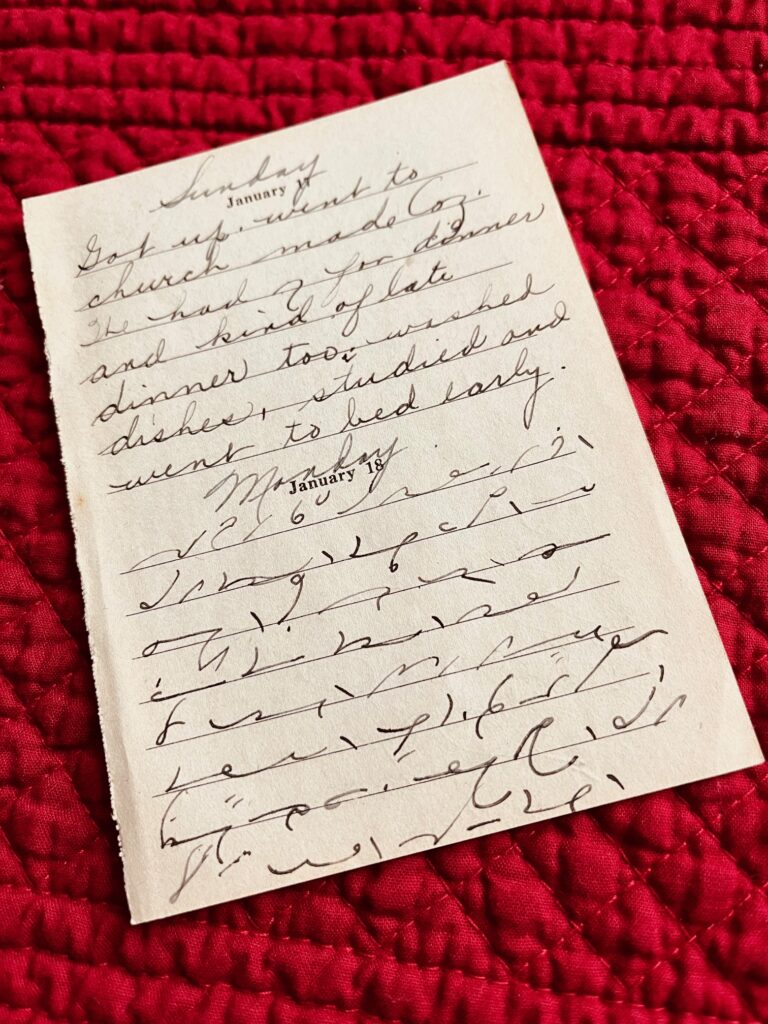In my high school days I watched a soap opera whose tag line was “like sand through the hourglass, so are the days of our lives.” Watching the lives of those portrayed in the 30 minutes of television that housed the program, it was clear to me that the sand flowing through the lives of these characters was much more dramatic and interesting than mine. The stories allowed me, for a small commitment of time, to glimpse complicated, complex, edgy lives, people with incredible clothes and mind bending relationships. It was fantasy and a welcome respite from an ordinary, small town,teenage life.
I thought of that quote a few weeks ago in an unlikely place. Having been bombarded by the usual noise of the day that is so prevalent right now, I headed to the Minneapolis Institute of Art to observe a group of Tibetan nuns creating a mandala with sand. Walking into one of the rotundas at the museum, I walked toward the center to see women leaning over an elevated table. Just near them were two other tables…one with their supplies of small bowls of colorful sand and the metal tubes they used to move the sand into place. Another was adorned with flowers and other things that constituted what I assumed to be a shrine of sorts. This defined the space for their work. Their movements were slow, smooth, nearly balletic in nature. Somehow the shaking of the metal tubes allowed just the right amount of sand to find its place in the beautiful, intricate pattern of the mandala. They did not speak to one another but seemed to, in some intuitive way, know what their role was in the creation of this art. Other people watched from one floor up, peering over the balcony. Others walked along the outside of the invisible circle the nuns had created and filled with the intensity of their work.
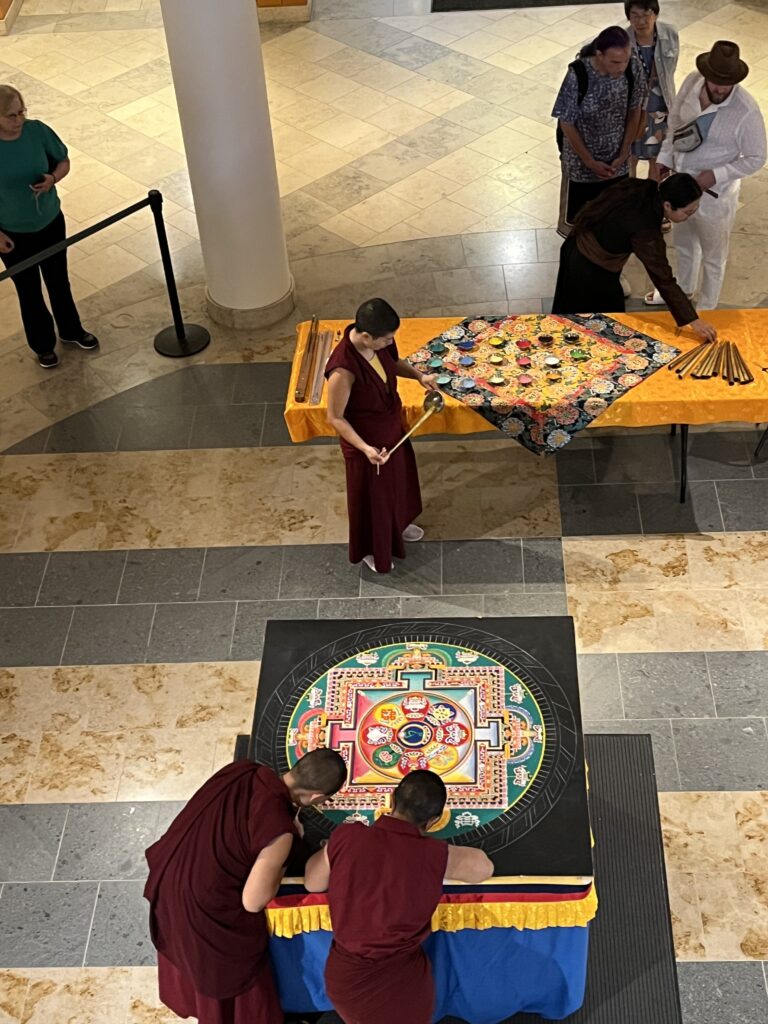
The whole experience moved through me creating a sense of calm and peace. Somehow by being witness to their work I felt part of it. The noise and clatter of all I listened to on the radio or read in the paper melted away. For a short time it was like being transported to a time and place where the grains of sand reflected the wisdom that had been a part of time eternal. These women who have dedicated their lives in ways that are mysterious to me exuded the message that even in the midst of what often feels like chaos and uncertainty, it is possible to take something as elemental and small as grains of sand and use them for beauty, for good.
As I stood there watching their work, I wondered what was going through their minds. Was there worry about the future …the kind that has been gripping my brain these days? Were they thinking about the many places in the world erupting into violence daily? The lives that have been lost with no end in sight? Were they lamenting our warming climate? Were they thinking about what those of us watching were thinking about them? Did their minds travel to what they were going to do that evening after their creating had come to an end? Were they thinking about supper? These questions say more about me and them I’m sure.
It is probably true that their meditation life is so deep that the ability to be fully, fully present is all that is needed. They were most likely focused on the grains of sand, their brilliant colors and the steadiness of their hands as the sand was added to the patterns. Though it is from a different tradition, a writer in the Hebrew scriptures in the book of 1 Kings writes about king Solomon:”And God gave Solomon wisdom and understanding exceeding much, and largeness of heart, even as the sand that is on the sea shore.” Perhaps that same fullness of wisdom and understanding and largeness of heart lived within these women as they did the work they were called to do.
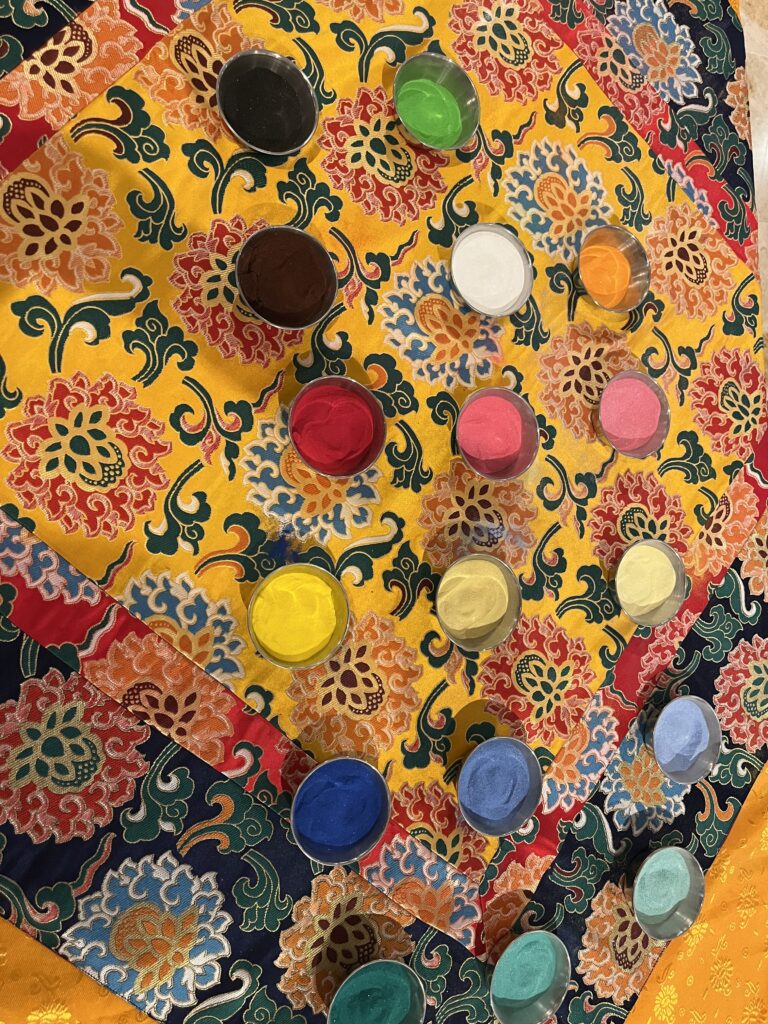
Standing to the side of their workspace a young woman quietly answered questions. Though I knew the answer to the question about the ‘what next?’ of the mandala, I asked anyway. Yes, it would remain in the museum for a week for people to enjoy. Then it would be dismantled and for those who wanted sand it would be placed in small vials for people to take. And what was left? It would be poured into the Mississippi River so “its gifts could continue flowing.”
Crossing that mighty river as I do nearly every day, I am imagining the wisdom, the largeness of heart and the peaceful calm that was created and exhibited by these small, dedicated women. The work they do has been done for centuries and will continue after all the chaos and uncertainty passes over us. Like sands…flowing down a river…so are the days of our lives.
